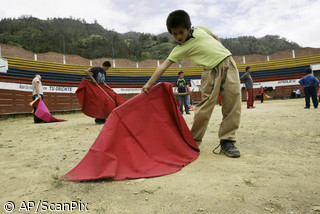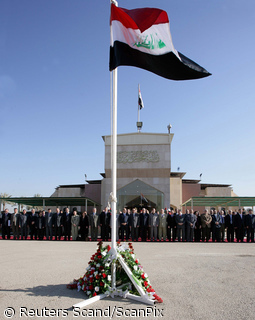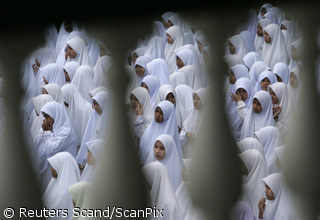Future gangster is "Don Corleone behind a laptop".
Published:
8 September 1999 y., Wednesday
In the next decade, the world_s crime fighters say they will fight international organized crime on several fronts, battling financial fraud, corruption, the sale of human beings for sex and labor and the trafficking of weapons of mass destruction. The focus of a three-day crime-fighting conference at Garmisch-Partenkirchen (Germany) sponsored by the FBI and the George C. Marshall European Center for Security Studies was touted in advance- as an assessment of organized crime_s impact on national security. But the meeting of American, European and Eurasian top brass ended Thursday with little open discussion of such forecasts. Organizers admitted the conference fell short of that objective, but said other goals had been achieved, namely the forging of new East-West relationships between law enforcement officials. One senior U.S. law enforcement official involved in planning the event told APBNews.com it was difficult to get officials from the former Soviet republics to open up and discuss their problems and worries over mobsters operating in their fledgling democracies. Author and criminologist Joseph Albini, of Indiana_s Wayne State University, said he estimates that as early as 2000, more than 90 percent of those involved in organized crime will be computer literate on some level. "The conception of Don Corleone [from the "Godfather" movies] smoking a cigar is better seen as Don Corleone behind a laptop," he said. It is the access to mass media information and the technology boom that are changing the face of mobsters from thugs to super-criminals, Albini said. Kulikov echoed that view. "We are at the threshold of a new millennium. We have to be prepared for the emergence of new types of criminal activity," including technological, he said. The retired Russian general clicked off a number of examples, including trafficking illegal genetically-engineered human organs and crop seeds. A senior intelligence officer from Great Britain who specializes in organized-crime analysis said tomorrow_s gangsters almost certainly will be consumed with electronic commerce, particularly online gambling, credit card fraud and virtual banking, where a financial institution exists solely in cyberspace. Another possibility, he said, is the theoretical notion of virtual-reality narcotics, which assumes it is possible to transmit a digital "stimulant" or hallucinogen across the Internet, creating a new form of addiction. "Biotechnology and information technology are the two biggest revolutions of this century, and we should look at each of them and see where the potential for money is from the criminal point of view," the official told APBNews.com, requesting anonymity.
Šaltinis:
APBNEWS.COM
Copying, publishing, announcing any information from the News.lt portal without written permission of News.lt editorial office is prohibited.
The most popular articles
 At 11 years old, Michelito Lagrave is a veteran bullfighter, with more than a 160 kills to his name.
more »
At 11 years old, Michelito Lagrave is a veteran bullfighter, with more than a 160 kills to his name.
more »
 20-year-old beauty queen Mariana Bridi da Costa by Saturday was dead.
more »
20-year-old beauty queen Mariana Bridi da Costa by Saturday was dead.
more »
 The 12-year-old is living rough in a UN school with his parents and nine siblings.
more »
The 12-year-old is living rough in a UN school with his parents and nine siblings.
more »
 The provincial elections will be the first to be organized by Iraq and held under Iraqi laws since the U.S.-led invasion in 2003.
more »
The provincial elections will be the first to be organized by Iraq and held under Iraqi laws since the U.S.-led invasion in 2003.
more »
 The three-day tattoo show - the first of its kind in Asia- is expected to draw about 5,000 people, as its showcases tattooists from about 25 countries around the world.
more »
The three-day tattoo show - the first of its kind in Asia- is expected to draw about 5,000 people, as its showcases tattooists from about 25 countries around the world.
more »
 The West Eastern Divan Orchestra is made up of 90 members from the Middle East.
more »
The West Eastern Divan Orchestra is made up of 90 members from the Middle East.
more »
 Joe the Plumber became a household name during the 2008 presidential campaign when Wurzelbacher questioned then-candidate Democrat Barack Obama about his tax policy.
more »
Joe the Plumber became a household name during the 2008 presidential campaign when Wurzelbacher questioned then-candidate Democrat Barack Obama about his tax policy.
more »
 China's coldest city of Harbin played host to twenty-two couples getting married in sub-zero temperatures.
more »
China's coldest city of Harbin played host to twenty-two couples getting married in sub-zero temperatures.
more »
 Now in a global economic crisis, developers in Argentina are still promoting multi-million dollar, multi-polo-field properties as the cost-conscious alternative to traditional hot spots like Palm Beach.
more »
Now in a global economic crisis, developers in Argentina are still promoting multi-million dollar, multi-polo-field properties as the cost-conscious alternative to traditional hot spots like Palm Beach.
more »
 The ban on women entering the Iraqi Shi'ite shrine district of Khadimiya for the annual Ashura ritual is unprecedented.
more »
The ban on women entering the Iraqi Shi'ite shrine district of Khadimiya for the annual Ashura ritual is unprecedented.
more »